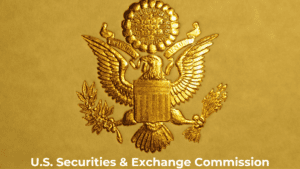QR codes have become a convenient way for consumers to make payments, access information, and interact with businesses. However, criminals are exploiting this technology to steal sensitive financial data. One such scam recently surfaced in the U.S., where fraudsters placed fake QR codes on parking meters to redirect unsuspecting drivers to fraudulent payment websites.
Fake Parking Payment QR Codes: How the Scam Works
A particularly alarming case occurred in San Clemente, Calif., as reported by Carlos Granda of KABC-TV. Resident Vance Ingmanson discovered a scam after attempting to pay for parking. “We punched in the URL. The URL—the first five on the Google search were fakes,” Ingmanson said. “It was a scam. It has the logo. It says ‘passport parking.'”
After entering his payment information, Ingmanson’s wife received a bank fraud alert about unauthorized charges on their account. Authorities later found fake QR codes at 150 parking meters in the area.
Similarly, in Florida, a resident reported to the Better Business Bureau (BBB) that they were scammed out of $1.25 after scanning a QR code for PayByPhone. The fraudulent transaction triggered an immediate alert from their bank. According to the BBB, at least 12 similar QR code-related scams had been reported in 2024.
QR Code Swapping: A Deceptive Tactic
The U.K. has seen a surge in QR code-related fraud as well, according to a Jade Wright story for MSN. She noted that criminals have been placing counterfeit QR codes over legitimate ones at parking meters, deceiving drivers into entering their payment details on fake websites. Once the transaction is complete, scammers gain access to victims’ banking information, often resulting in drained accounts.
One case in Northern England highlights the severity of the issue. A motorhome driver in the seaside town of Skegness was tricked into paying £39 for parking through a fraudulent QR code. Initially, only 90p was withdrawn from his bank account, but the following day, a further £39 disappeared, revealing the scam.
Google searches for “parking charge scams” in the U.K. have surged by 300 percent in the past year, indicating a growing concern among consumers.
Keith Hawes, director at Nationwide Vehicle Contracts, Manchester, warns that fraudulent QR codes are designed to mimic legitimate payment portals, making them particularly deceptive. “Scanning a QR code at the parking meter can lead to customers sharing their payment details on untrustworthy domains,” Hawes explains. “It is best practice to pay through a mobile app, by downloading the relevant parking app directly from the App Store or Google Play.”
Protecting Your Customers Against QR Code Attacks
For financial institutions and their customers, QR code scams pose a significant economic threat. While individual losses might seem minor, the cumulative effect of these fraudulent transactions can be substantial. Banks bear the cost of fraud prevention, reimbursement for defrauded customers, and increased cybersecurity measures. Meanwhile, consumers risk identity theft and financial losses, eroding trust in digital payment systems.
How Financial Professionals Can Help Prevent QR Code Fraud
Financial services professionals can play a crucial role in educating consumers on avoiding QR code scams. Here are key recommendations they can offer:
- Verify the QR Code Source – Customers should ensure that a QR code is part of an official sign and not a sticker placed over an existing one.
- Use Official Parking Apps – Encourage customers to download parking apps directly from verified sources rather than scanning QR codes at payment terminals.
- Check the URL Carefully – Fraudulent websites often have slight misspellings or additional characters. Customers should manually enter known URLs instead of relying on scanned links.
- Monitor Bank Statements – Consumers should regularly check for unauthorized transactions and report any suspicious activity to their financial institution immediately.
- Be Wary of Unusual Fees – If parking fees seem unexpectedly high or low, customers should verify the pricing with official sources.
The Bank’s Role in QR Code Education
As QR codes continue to integrate into daily transactions, their misuse by fraudsters presents a growing risk. By staying vigilant and following best practices, consumers can protect themselves from financial harm.
Financial professionals must take the lead in raising awareness, ensuring that customers understand how to recognize and avoid these digital traps. As Hawes advises, “Planning parking in advance can mitigate the risk of being scammed when paying for parking.”
This kind of guidance is essential in safeguarding bank customers from increasingly sophisticated cybercriminal tactics.



















